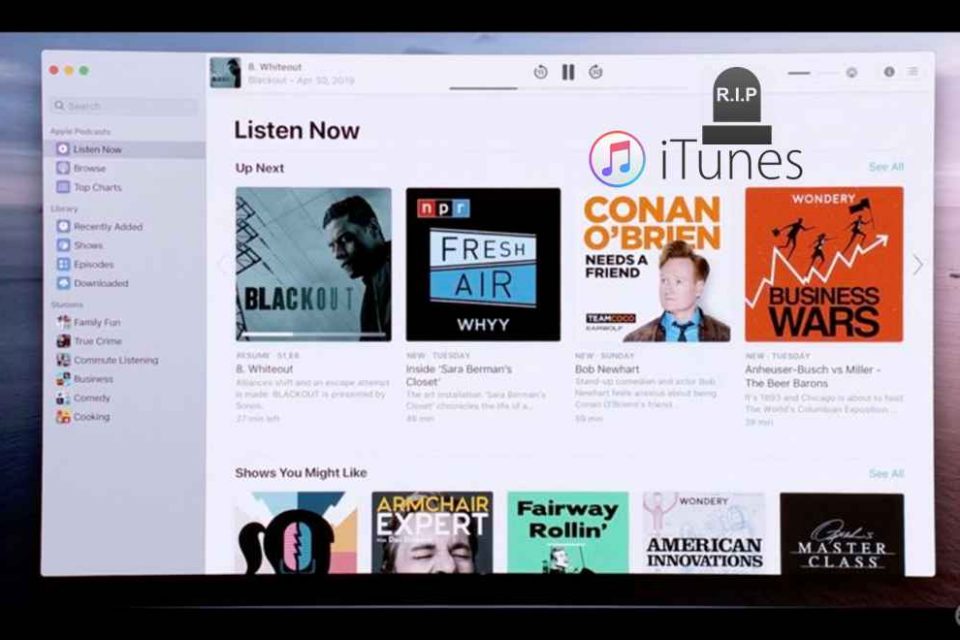Apple is shutting down iTunes

Dearly beloved,
It’s with a sad heart that we announce the death of our good friend, iTunes, who passed away on Monday, June 3, 2019. At the time of its passing, iTunes was surrounded by loved ones, family and friends at Apple annual Worldwide Developers Conference (WWDC). During its 18 years, iTunes changed the lives of many music lovers around the world. iTunes will sorely be missed. iTunes is survived by macOS Catalina, the latest version of Apple’s Mac operating system, which is expected to debut this fall.
“With macOS Catalina, we’re bringing fresh new apps to the Mac, starting with new standalone versions of Apple Music, Apple Podcasts and the Apple TV app,” said Craig Federighi, Apple’s senior vice president of Software Engineering. “Users will appreciate how they can expand their workspace with Sidecar, enabling new ways of interacting with Mac apps using iPad and Apple Pencil. And with new developer technologies, users will see more great third-party apps arrive on the Mac this fall.”
Born on January 9, 2001 to the Apple family, iTunes was a media player, media library, Internet radio broadcaster, and mobile device management application. It was used to play, download, and organize digital multimedia files, including music and video, on personal computers running the macOS and Windows operating systems.
According to iTunes’ family, macOS Catalina will replace iTunes with separate applications for Music, Podcasts, and TV. Finder will also be able to perform the device management capabilities previously contained within iTunes. This change will increase continuity with iOS, where they are also separate apps. The change will also not affect Windows or older macOS versions.
The original and main focus of iTunes’ was music, with a library offering organization, collection, and storage of users’ music collections. It was also used to rip songs from CDs, as well as play content with the use of dynamic, smart playlists. In 2005 however, Apple expanded on the core features with video support, later also adding podcasts, e-books, and a section for managing mobile apps for Apple’s iOS operating system, the last of which it discontinued in 2017.




